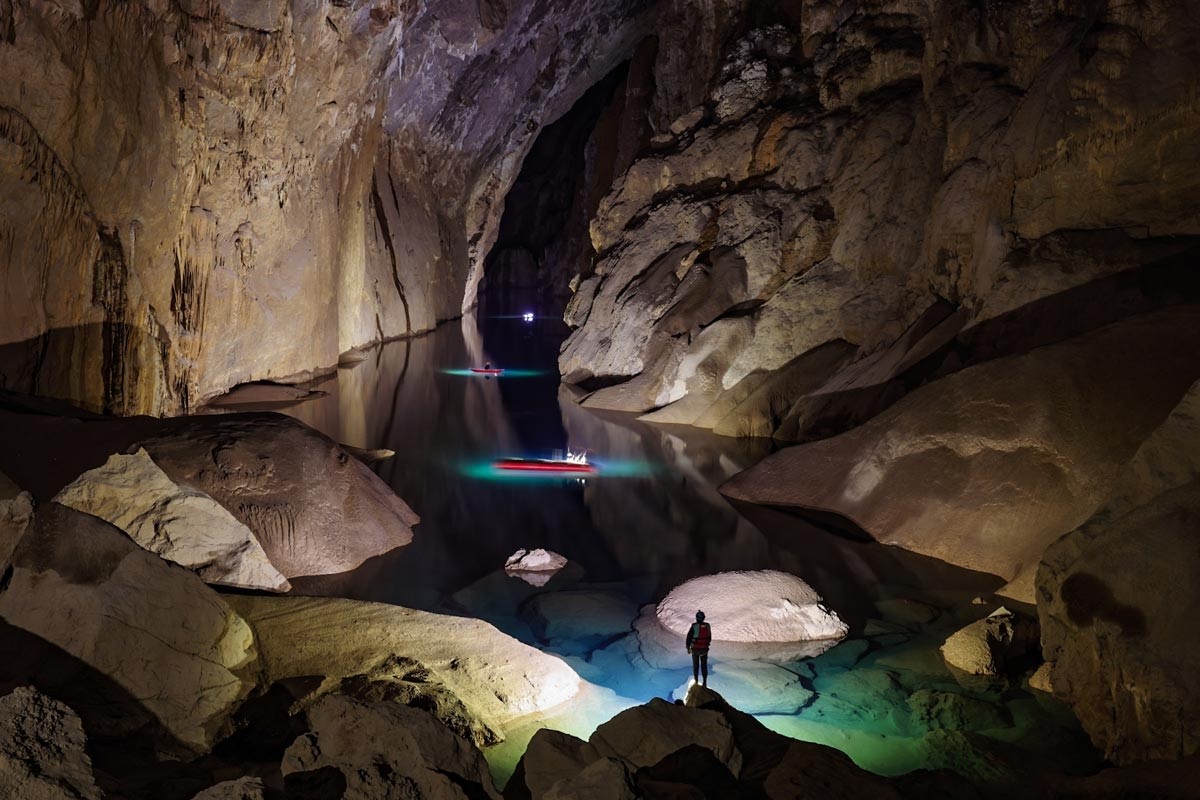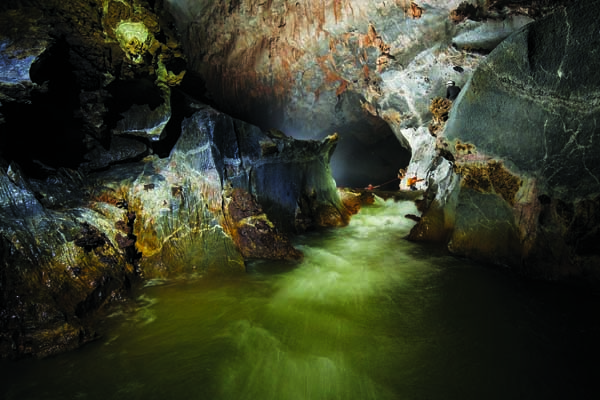Located in Phong Nha Ke Bang National Park, Bo Trach District, Quang Binh Province, Hang Son Doong (Son Doong Cave) - the largest cave in the world, and Hang Thung (Thung Cave) contain many unexplored mysteries.

Son Doong Cave (in Phong Nha – Ke Bang National Park, Vietnam) Photo: Oxalis Adventures
According to the Travel, caves can be magical, haunting, small or gorgeous and it serves as a gateway into the past and an example of the way the planet has evolved.
Son Doong Cave is no longer a stranger to visitors around the world, since Phong Nha-Ke Bang National Park, inscribed on the World Heritage List in 2003. This famous cave of Vietnam was discovered in 1991 by a man named Ho Khanh, who was living in the nearby jungle. It contains distinct rock formations, underground bodies of water and other fascinating highlights, making them major attractions for locals and visitors. Aged between 2 and 5 million years old, due to its possession of a 90m high calcite barrier, it is titled as the “Great Wall of Vietnam”. Son Doong Cave has a volume of 38.5 million m³ and consists of at least 150 individual caves, along with a thick subterranean jungle and numerous underground rivers. Son Doong with caverns large enough can house a 40-story skyscraper.
From 29th January 2022, the BBC nature film team started recording scenes at Phong Nha - Ke Bang, helping to promote a symbol of Vietnam's tourism to the world. Along with that, Son Doong has been honoured by prestigious international travel magazines such as: one of the 11 best tourist destinations in the world (Telegraph 2019); one of the 5 bucket lists in 2019 (Lonely Planet); one of the destinations of 2022 (AFAR). Son Doong Cave is still the World’s largest cave so far and the most tempted destination for adventurers around the world.
Technically, the neighbouring Thung Cave, is the second part to the aforementioned Son Doong in Vietnam and is a massive cave. It was only recently discovered by a British team in 2019 after finding a new underwater tunnel connecting Son Doong. The connection to Hang Thung adds an additional 1.6 million cubic metres in volume to Son Doong’s already massive 38.5 million cubic metres.

Thung Cave (Phong Nha National Park) Photo: Vietnam Heritage
The Travel also mentioned in the article the caves as follows:
Skocjan Caves, Slovenia; Clearwater Cave System, Malaysia; Lechuguilla Cave, New Mexico; Wind Cave, South Dakota; Shuanghedong Cave Network, China; Optymistychna Cave, Ukraine; Sistema Ox Bel Ha, Mexico; Jewel Cave, South Dakota; Sistema Dos Ojos, Mexico; Mammoth Cave, Kentucky.